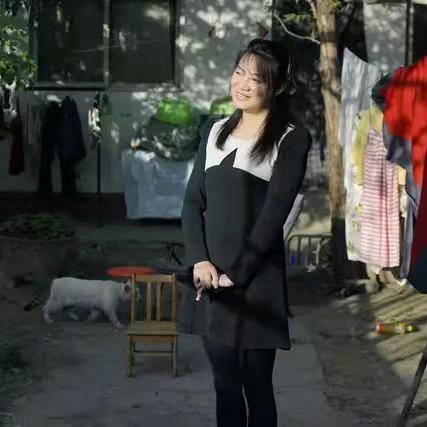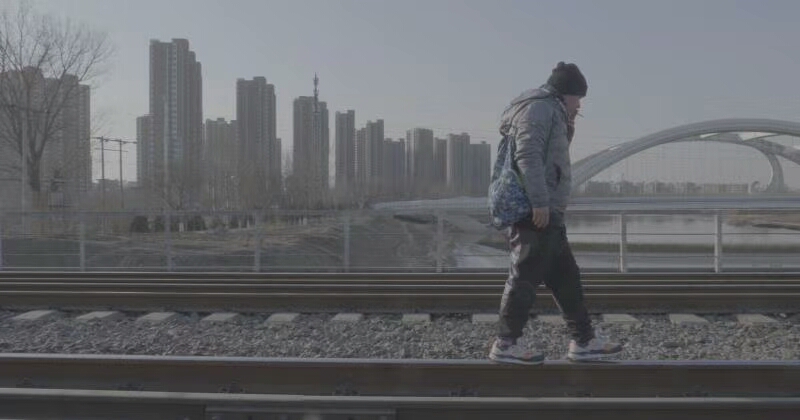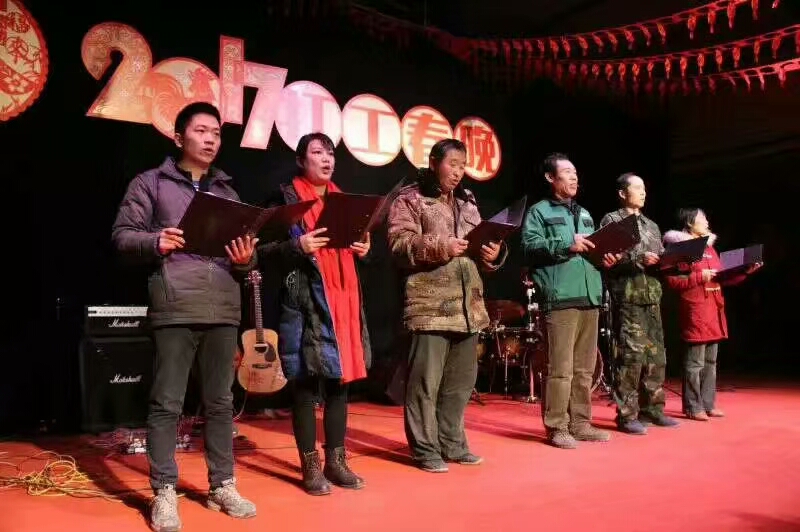LI RUO
脱光了,睡你
床,你幸苦了
今天休息
赖了你一天
一直睡到头昏脑胀
四肢无力
床,谢谢你
不管我得意失意
你总是
毫无怨言的
在背后默默地支持我
从不冷眼
从不势利
不管我是胖是瘦
从不嫌弃
床,你是我的自知己
你懂我无助的叹息
你抚慰我暗夜的哭泣
床,不知道你爱不爱我
我一如既往的爱着你
不管愿不愿意
今夜
我要脱光了
睡你
undressed, I’ll sleep with you
bed, you have worked hard
today was my free day
and I’ve lazily spent it all on you
sleeping until dizzy
and exhausted
bed, thank you
whether I’m happy or down
you always
have no complaints
silently you sustain my shoulders
never indifferent
never arrogant
whether I am fat or thin
never have you let me down
bed, you’re my closest friend
you understand my hopeless sighs
you comfort my tears in the night
bed, I don’t know if you love me
but I love you just as before
whether you’re willing or not
tonight
I’ll get undressed
and sleep with you
被停电
下午
被停电
晚上
摸着黑刷牙
摸着黑洗脸
大街上灯火通明
小院里漆黑一片
我们的世界
如此黑暗
闭上眼
睁开眼
都一样
啥也看不见
我们的世界
如此黑暗
blackout
Li Ruo
this afternoon
power was cut
this evening
I brush my teeth in the dark
I wash my face in the dark
lights shine on the street
the courtyard is pitch-black
such dark is
our world
eyes shut
eyes open
it’s the same
can’t see anything
such dark is
our world
过年回家
放假了
衣服
裤子
鞋子
身份证
我带来的
我还带走
泪水
欢笑
尊严
车票
我一一收拾
装进背包
踏上回家的旅途
我把带不走的留下
床铺
杏树
走过千万遍的那截马路
或许
青春
是一场有去无回的旅行
每个人都走得义无反顾
back home for new year
Li Ruo
it’s holiday
clothes
pants
shoes
ID card
what I brought with me
I’m taking back
tears
laughs
dignity
train tickets
I have collected everything
in the bag over my shoulders
I set foot on the road home
I leave what I can’t bring
the bed
the apricot tree
the road I have walked thousands of times
perhaps
youth
is a journey with no return
everyone is bound by honour not to look back
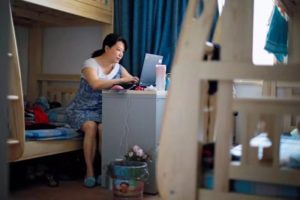
Li Ruo comes from Xinyang, Henan province. Because of her family’s financial hardships, she, together with her younger brother, could not complete high school. She later worked in a number of electronics and clothing factories in the southern cities of Guangzhou and Suzhou, before moving to Beijing in 2012. Finding out about the Picun literature group was, for her, an opportunity to resume her studies from where she had left them, and to realize her passion for writing. She writes mostly non-fiction and short stories, where she vividly and realistically depicts the life in her rural hometown.
The above photo of Li Ruo is the cover of the fourth issue of Xin gongren wenxue (Literature of the New Workers, the self-produced journal of the Picun literary group
XIAO HAI
梦想之都
长安街很宽
可转过日坛路就堵了
坐车错过了工体
就随403一路坐到了北京站东
下车后去车站广场转转
找找初次来到北京时的自己
有些人把梦想紧紧地背在包里
有些人把梦想摊平随地倒下
有些人的梦想表露在神情上
而有些人握着正义的梦想 一言不发
从建国门桥上望下去
这座城市灯火通明
我们在这灯火通明的城市里寻找着回家的归程
可高楼从来都化解不了大地的忧伤
就如同有些乌云从来都解决不了需要的雨
有些人的梦想坐在车里
有些人的梦想飞在天上
有些人的梦想穿梭在地宫里日夜疾驰
而有些人的梦想破碎如尘埃洒落一地
那梦想遥远如天上的星星
被迷雾遮住
遮住在夜空
在时间的黑洞
在梦想之都
在梦想之都
city of dreams
Xiao Hai
wide is Chang’an Avenue
but turn to Ritan Road and the traffic gets congested
on the bus I miss Workers’ Stadium
so I stay on the 403 until Beijing East Station
I get down and walk around the station’s square
looking for the myself who had just arrived to Beijing
someone ties their dreams in bags over shoulders
someone scatters their dreams on the ground
someone’s dreams are revealed on their looks
but someone else holds on to dreams of justice without saying a word
gazing down from Jianguomen Bridge
this city is burning with lights
in this city of burning lights we look for the road back home
but never could skyscrapers dissolve the distress of the earth
just like some black clouds could never solve the need for rain
someone’s dreams travel on trains
someone’s dreams fly to the skies
someone’s dreams gallop through night and day in underground palaces
but someone else’s dreams are shattered like dust spilled on the ground
those dreams, distant like stars in the sky,
covered by the fog
covered in the night sky
in the black holes of time
in the city of dreams
in the city of dreams
流水线上的青春
无尘衣 无尘帽 无尘靴子
车间流水线上下
已是显得干净无比
可我们的表情还是无法舒展
一年比一年飘荡的厉害
双手越来越跟不上机台的节奏
重复 重复 来回重复
我们的青春
在螺丝 红色电源线
和微型电阻里消耗着
一年比一年沉默的厉害
从深圳到苏州
从嘉兴再到北京
十多年青春
就这样静悄悄地流走了
每一座车间的水泥地都很厚很厚
每一片月色下都有烟火
每一截桃枝里都有春天
我们的心也随着
城市 工厂 车间
来回辗转
在繁茂里枯萎
在凋零中生发
瞧 瞧啊
多么像这一场场
来路不明的雾霾
youth at the assembly line
Xiao Hai
electrostatic clothes electrostatic caps electrostatic boots
up and down the assembly line
everything couldn’t be clearer
but no way to smooth out our looks
increasingly drifting from year to year
hands missing the rhythm of the machine more and more
repeat repeat repeat again
our youth
is wearing out in micro-resistances
screws and red power cables
increasingly silent from year to year
from Shenzhen to Suzhou
from Jiaxing until Beijing
more than ten years of youth
have quietly flown away just like this
the cement ground of every workshop is so thick
under every moonlight there’re fireworks
in every peach-tree branch there’s spring
our hearts also following
cities factories workshops
toss back and forth
withering in flourishment
growing in decay
look, look!
how it resembles this
fog of unknown origin
用一首短诗去抵抗世俗
我所有的青春都在沉默中消融
我所有的爱情都在无解中蜿蜒
我所有的希望都在废墟中萌芽
当三月空空地流走
我只用一首短诗去抵抗世俗
我所有的尊严都靠在温饱线卑微
我所有的梦想都临在触碰间破碎
我所有的自由都淌在漂泊里捆绑
当三月匆匆地流走
我只用一首短诗去抵抗世俗
我所有的太阳都在无知中到来
我所有的月亮都在寂寞里盛开
我所深深眷恋的你啊
这不只是爱情
这是生命
当三月再次到来的时候
请把我的短诗取走
还我的一个完整且纯洁的世俗
a short poem to resist the world
Xiao Hai
all my youth melts within silence
all my love wriggles in unfathomability
all my hope sprouts up among ruins
as March empty flows away
I remain with nothing but a short poem to resist the world
all my dignity shrinks on the subsistence level
all my dreams shatter upon touch
all my freedom drips bound in drifting
as March fast flows away
I remain with nothing but a short poem to resist the world
all my suns come unforeseen
all my moons bloom silent and solitary
and you, oh, to whom so deeply I long for
this is not just love
this is life
as March comes again
may it collect my short poem
and give me a world complete and pure
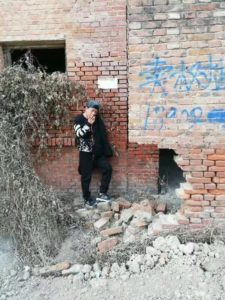
Xiao Hai was born in Shangqiu, Henan province, in 1987. His hometown was also the birthplace of the ancient Chinese philosopher Zhuangzi (4th century BCE). After his technical studies, he started working in an electronics factory in Shenzhen, and later he travelled around the country, constantly changing factories and even occupations in such places as Guangdong, Ningbo, Suzhou and Shanghai. During this period, his encounters with Chinese and international rock music, and the poems of Allen Ginsberg and the famous 1980s poet Haizi ignited Xiao Hai’s passion for poetry. He moved to Beijing in 2015 and immediately came in contact with Picun. With more than 500 poems, he is one of the most prolific authors of the literature group.

Federico Picerni is a PhD candidate in contemporary Chinese literature in a joint programme between Ca’ Foscari University of Venice and Heidelberg University. His current research concerns worker literature in China, with a focus on the production of the literature group of rural–urban migrant workers based in Picun, an urban village in the outskirts of Beijing. He has also translated some works of other contemporary Chinese poets, most notably Yang Lian’s Venice Elegy (Damocle, 2019).
Photo gallery and cover photo courtesy of poet Xiao Hai of the Picun Literary Movement.










































